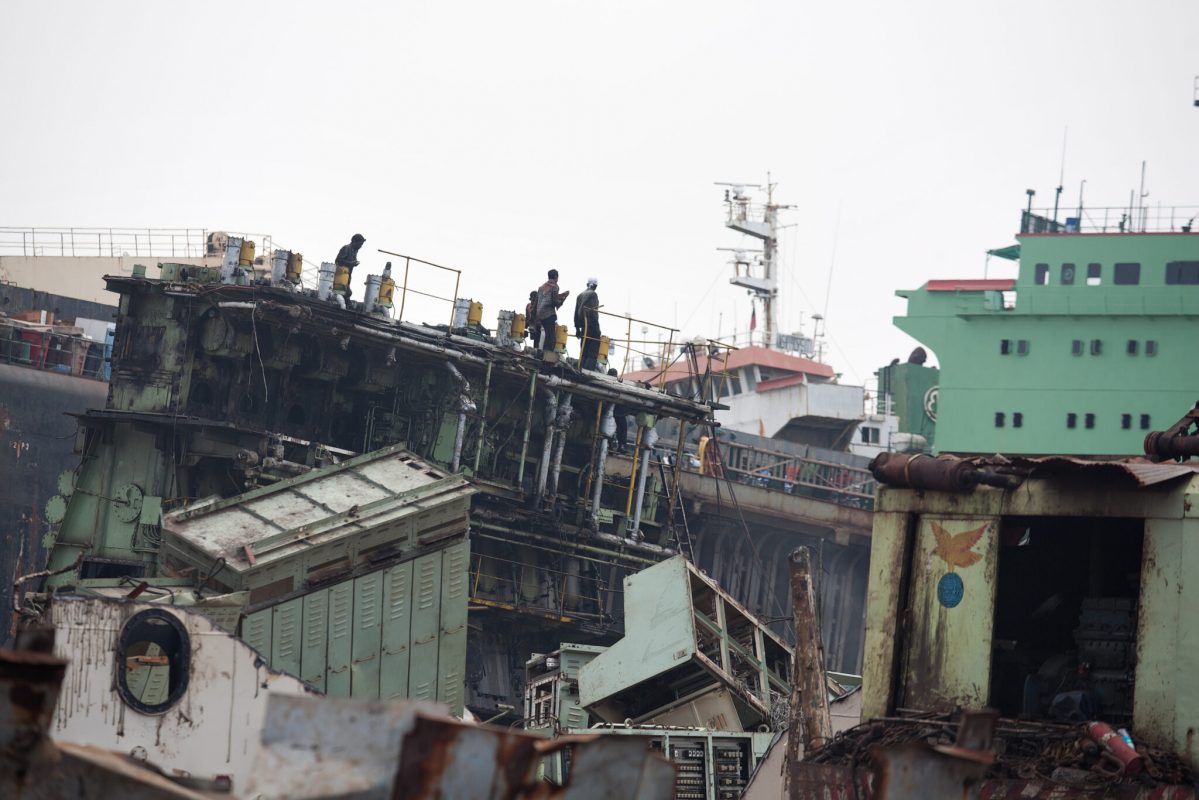[ad_1]
Business is booming at the Aliaga Shipyard in western Turkey, where five hulking cruise ships are being dismantled for scrap metal sales after the COVID-19 pandemic all but destroyed the cruise industry.
Ship recycling in Turkey is carried out in an industrial zone that is state-owned and leased out to private companies. The yards are located in Aliaga, around 50 km north of Izmir on the Aegean coast in an area that hosts a large cluster of heavy industries.
The ship recycling zone was first established by a government decree in 1976. Most of the workers originally come from Tokat and Sivas in Eastern Turkey and have settled in Aliaga. The Turkish ship recycling yards apply the so-called landing method. The bow of the vessel is grounded on the shore while the stern is still afloat. The blocks are then lifted by cranes onto a drained and impermeable working area. The yards do not resort to the gravity method, that is, dropping blocks into the water or onto the beach.
In 2002, Greenpeace reported poor conditions for workers’ health and the environment in the Turkish shipbreaking yards. The researchers found that no adequate protection was provided for the workers and no proper measures were in place to prevent environmental contamination. As a reaction to international criticism, the Government of Turkey introduced new procedures for the management of hazardous wastes. In 2009, the NGO Shipbreaking Platform followed up with a new report on downstream waste management. It identified significant progress, though concerns remained related to certain waste streams such as the disposal of heavy metals and PCBs.
Since then, the Turkish ship recyclers and the Government have continued to improve practices in Aliaga, both regarding environmental and social standards, including aligning the legal framework with international environmental conventions. The yards have opened their doors to independent researchers, consultants and experts. Moreover, the cooperation with European governments to dismantle obsolete navy vessels has further helped to improve practices. The more advanced Turkish yards have joined the International Ship Recycler’s Association (ISRA).
NGOs and local labour rights groups, including Platform partner Istanbul Health and Safety Labour Watch (IHSLW), also remain on more general grounds concerned about the high accident rate and the low awareness of occupational diseases at the Aliaga yards. As in South Asia, trade union organisation remains weak in Aliaga. The negative environmental impact of the landing method is also no doubt higher than recycling in a fully contained area.
The more progressive yards in Aliaga have applied to be on the upcoming EU list of approved ship recycling facilities. In order to make it on the EU list, the yards are subject to thorough assessment of their environmental, health and safety, and social performance, including the management of hazardous wastes downstream. In 2018, two yards in Aliaga were approved and included in the EU List.
Massive outbreak of COVID-19 on board of cruise liners has destroyed a good portion of this once lucrative industry.
In March, U.S. authorities issued a no-sail order for all cruise ships that remain in place.
On Friday, dozens of workers stripped walls, windows, floors and railings from several vessels in the dock in Aliaga, a town 45 km north of Izmir on Turkey’s west coast. Three more ships are set to join those already being dismantled.
Before the pandemic, Turkey’s ship-breaking yards typically handled cargo and container ships.
Onal said some 2,500 people worked at the yard in teams that take around six months to dismantle a full passenger ship. The vessels arrived from Britain, Italy and the United States.
The shipyard aims to increase the volume of dismantled steel to 1.1 million tonnes by the end of the year, from 700,000 tonnes in January, he said.
Even the ships’ non-metal fittings do not go to waste as hotel operators have come to the yard to buy useful materials, he added.
[ad_2]
Source link

